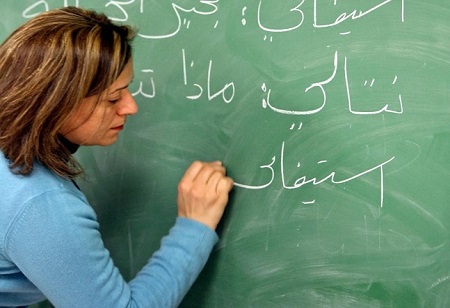The Abjad Center at the King Salman Global Academy for the Arabic Language in Riyadh has launched an in-person study program for non-native speakers. Currently, 150 students from 41 countries are participating in the program, aligning with the Human Capacity Development Program of Saudi Vision 2030. This initiative underscores Saudi Arabia's dedication to promoting the Arabic language and Arab culture. The program consists of four levels (A1, A2, B1, and B2), each lasting two months with a total of 160 educational hours or 20 hours per week. It also includes cultural enrichment activities. Upon completion of the program, participants will have a comprehensive understanding of the language's grammar, vocabulary, sounds, spelling, and key aspects of Arab culture. They will be proficient in both written and spoken Arabic, enabling effective communication in various situations.
The Abjad Center for Teaching Arabic is dedicated to delivering high-quality, internationally accredited education tailored for non-native speakers. The center's goal is to ensure learners acquire knowledge of the local culture and history, including customs and traditions. Abdullah Al-Washmi, the secretary-general of the academy, emphasized that the Arabic language is a global representation of an ancient and expansive culture. He stated that the program adheres to the latest international standards for teaching foreign languages, linking language learning to its culture and original environment. This approach aims to support and enhance the quality of learning, integrating it with natural communicative practices.
Established by the Council of Ministers, the Academy is committed to enhancing the global and regional significance of the Arabic language. It seeks to emphasize the language's role in expressing the linguistic richness of Arabic and Islamic culture. The Academy's initiatives are part of the Human Capability Development Program, aligned with the objectives of Saudi Vision 2030. The core objectives include preserving the purity of the Arabic language, supporting both its spoken and written forms, exploring its eloquence, origins, methods, vocabulary, and rules, facilitating its learning and teaching domestically and internationally, and staying updated on every linguistic change across all aspects of the Arabic language.

